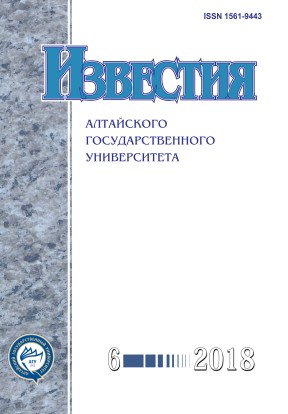The Development of Remote Work in Russia: Advantages and Disadvantages
Abstract
The article considers the topical issues of the development of remote work in Russia. The 21st century is called the century of information technologies: there is an active introduction of high technologies in all spheres of human activity, including the sphere of labor. Such atypical form of employment as remote work is based on the opportunity provided by modern technology to perform the job of the employer, without being in the workplace. In foreign countries, remote work is better developed in comparison with our country. Many foreign companies have experienced the positive aspects of distance employment: saving time spent on the road, solving transport problems, reducing environmental tensions, reducing unemployment, having more time for family communication and relaxation. However, the author points out not only the advantages, but also the disadvantages of distance employment. The article highlights the factors hindering the development of remote work in Russia, for example, the imperfection of the legal regulation of remote work and others. In conclusion, the prospects for further expansion of distance employment in Russia are assessed.
Downloads
Metrics
References
Кострюкова Н.Н. Перспективы развития нетипичных видов занятости в научной сфере [Электронный ресурс]. — URL : http://naukovedenie.ru/sbornik6/8.pdf (дата обращения 05.08.2018).
Мартынова О.В. Удаленная занятость в России и перспективы ее развития // Молодой ученый. — 2016. — № 2 (106).
Леденева И.Ю. Преимущества и недостатки дистанционной работы // Молодой ученый. — 2013. — № 2.
Удаленная работа: плюсы, минусы, технологии [Электронный ресурс]. — URL : http://volgogradcci.ru/page/udalennaya-rabota-plyusy-minusy-tekhnologii (дата обращения 08.08.2018).
Щур-Труханович Л.В. Трудовой договор о дистанционной работе: содержание, особенности и реализация на практике // Кадры предприятия. — 2014. — № 3.
Трудовой кодекс Российской Федерации : Федеральный закон от 30 декабря 2001 г. № 197-ФЗ (ред. от 03.08.2018) // СЗ РФ. — 2002. — № 1 (ч. 1). — Ст. 3.
Васильева Ю.В., Шуралева С.В., Браун Е.А. Правовое регулирование дистанционной работы: проблемы теории и практики : монография. — Пермь, 2016.
Леденева И.Ю. Преимущества и недостатки дистанционной работы // Молодой ученый. — 2013. — № 2.
Перспективы распространения дистанционной занятости в России 2014–2020 гг. [Электронный ресурс]. — URL : http://json.tv/ict_telecom_analytics_view/polnaya-versiya-prezentatsii-generalnogo-direktorasvetlany-vodyanovoy-s-press-konferentsii-bitriks24-i-jsonpartners-consulting-20150617030352 (дата обращения 15.08.2018).
Izvestiya of Altai State University is a golden publisher, as we allow self-archiving, but most importantly we are fully transparent about your rights.
Authors may present and discuss their findings ahead of publication: at biological or scientific conferences, on preprint servers, in public databases, and in blogs, wikis, tweets, and other informal communication channels.
Izvestiya of Altai State University allows authors to deposit manuscripts (currently under review or those for intended submission to Izvestiya of Altai State University) in non-commercial, pre-print servers such as ArXiv.
Authors who publish with this journal agree to the following terms:
- Authors retain copyright and grant the journal right of first publication with the work simultaneously licensed under a Creative Commons Attribution License (CC BY 4.0) that allows others to share the work with an acknowledgement of the work's authorship and initial publication in this journal.
- Authors are able to enter into separate, additional contractual arrangements for the non-exclusive distribution of the journal's published version of the work (e.g., post it to an institutional repository or publish it in a book), with an acknowledgement of its initial publication in this journal.
- Authors are permitted and encouraged to post their work online (e.g., in institutional repositories or on their website) prior to and during the submission process, as it can lead to productive exchanges, as well as earlier and greater citation of published work (See The Effect of Open Access).








